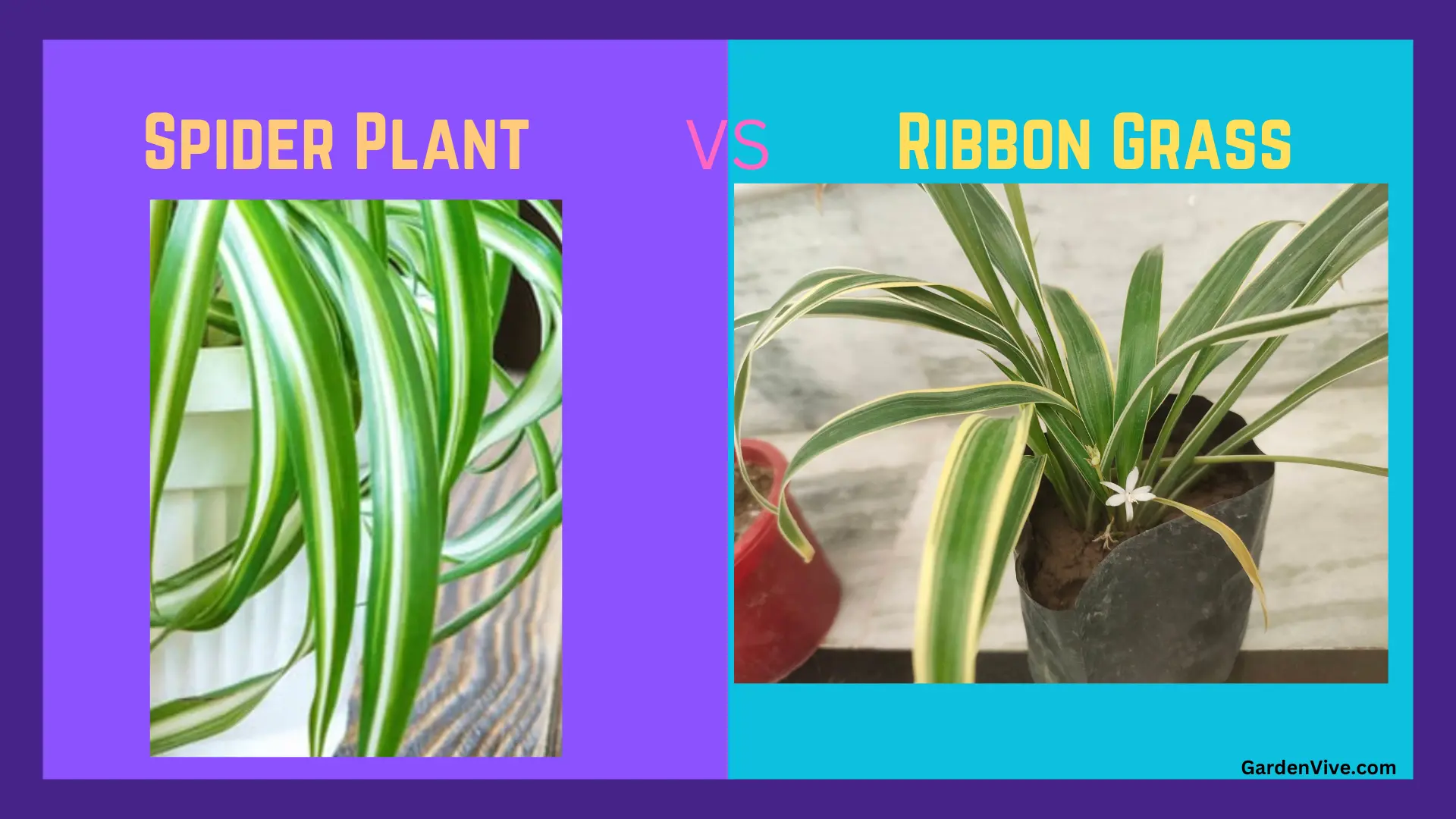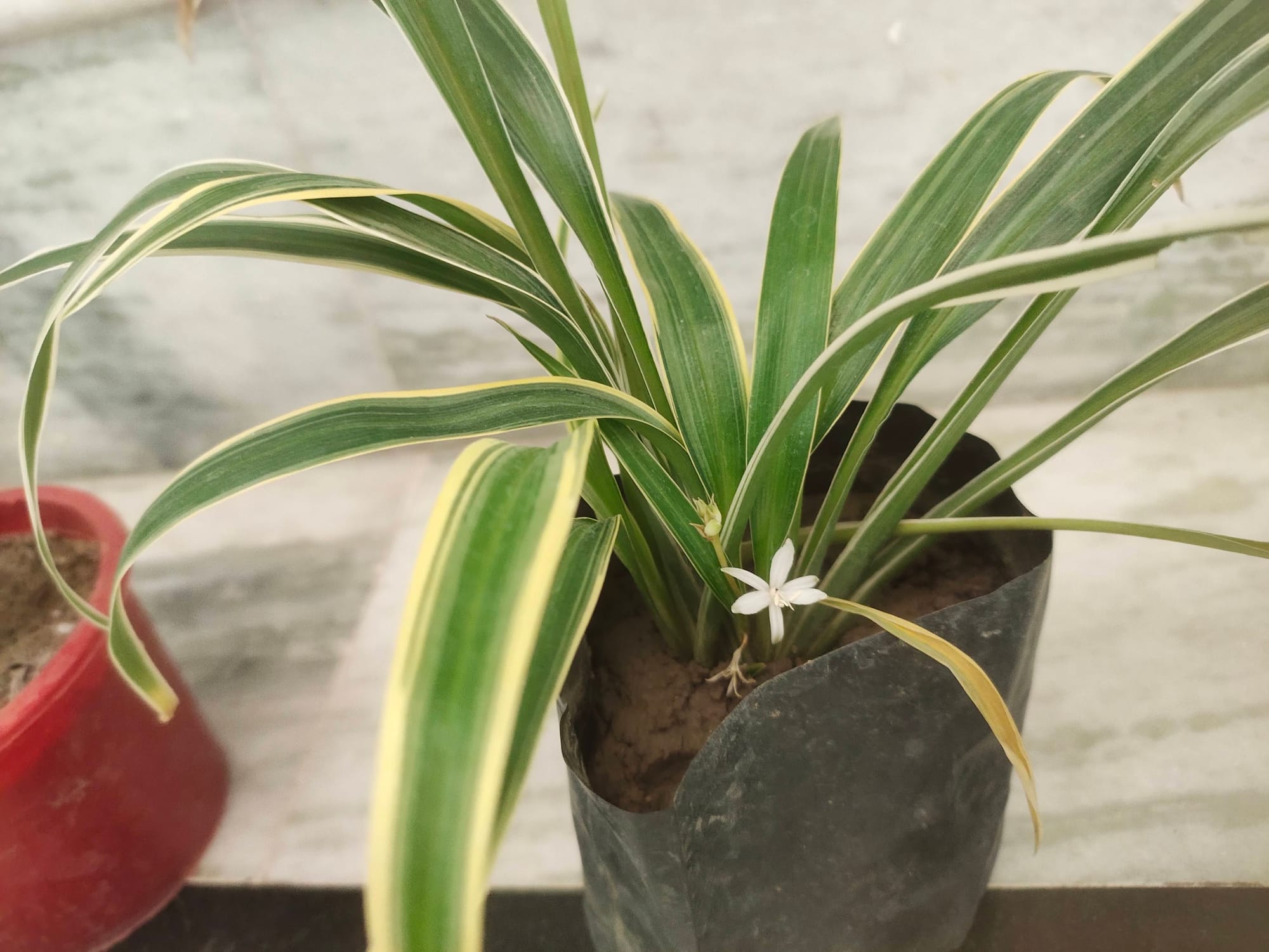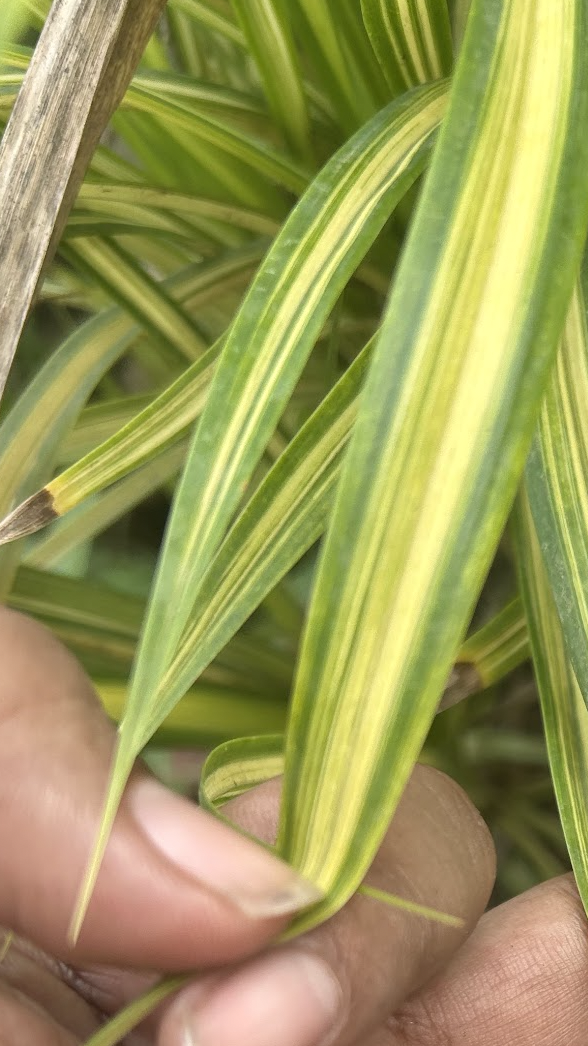
Ribbon Grass and Spider Plants are both loved by home gardeners and landscape lovers. I have joined many gardening communities on different platforms where people share photos of their plants with their names. I am tired of telling people that Ribbon Grass is different from Spider Plants and that they are not the same. In this article, I will explain how they differ and show you how to identify if a plant is a spider plant or ribbon grass.
I have heard people often calling it "Reverse Spider Plant".
We will start with the major noticeable difference.
Leaf strips difference between a Ribbon Grass and a Spider Plant
For Ribbon Grass you will see the center of the leaves are green and the sides are white. But if you check the leaves of a spider plant, you can see the center or inside color is white and the sides of the leaves are green.
Let's see the Ribbon Grass first:

Now see the leaves of a spider plant:

You can see the difference between the leaves of these two plants.
Propagation Difference
In Spider Plants, you'll notice a stem coming out that carries baby plants (Also know as spiderettes), which you can easily separate by cutting and planting them directly. On the other hand, Ribbon Grass is propagated through root division.
Other major differences:
| Feature | Ribbon Grass | Spider Plant |
|---|---|---|
| Scientific Name | Phalaris arundinacea | Chlorophytum comosum |
| Growth Habit | Dense clumps, ground cover | Arching leaves, produces baby plants |
| Light Preference | Full sun to partial shade | Bright, indirect light |
| Watering Needs | Moist soil, can tolerate wet conditions | Regular watering, drought-tolerant once established |
| Propagation Method | Root division | Stem cuttings (baby plants) |
| Invasiveness | Potentially invasive in outdoor landscapes | Non-invasive |
